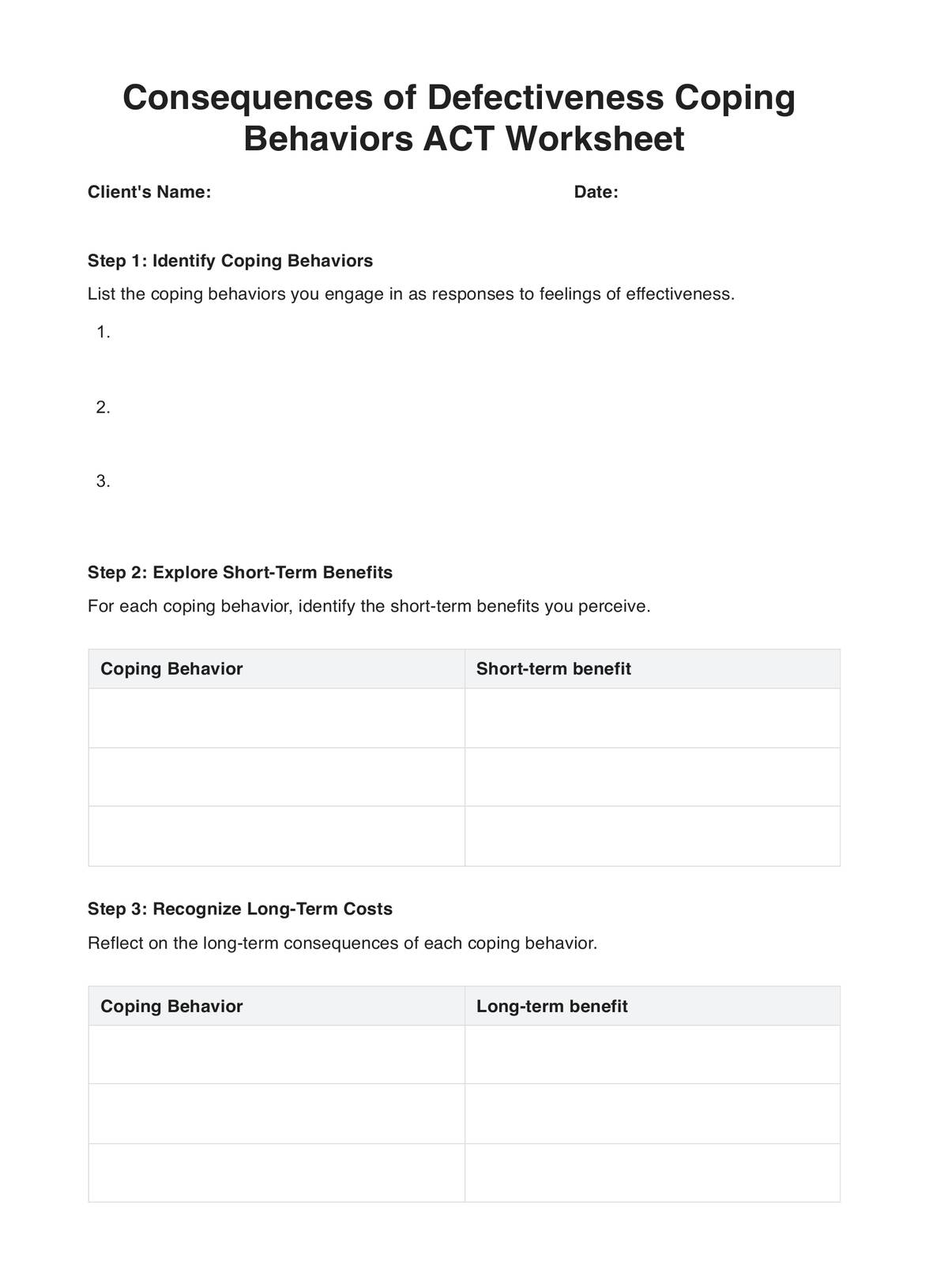The time varies based on individual reflection, but completing the worksheet usually takes 20-30 minutes.

Consequences of Defectiveness Coping Behaviors ACT Worksheet
Discover how the Consequences of Defectiveness Coping Behaviors ACT Worksheet helps identify and transform maladaptive coping strategies.
Use Template
Consequences of Defectiveness Coping Behaviors ACT Worksheet Template
Commonly asked questions
This worksheet helps individuals identify harmful coping behaviors driven by feelings of defectiveness. It guides them to explore the impact of these behaviors, connect with their values, and develop healthier responses.
The worksheet is beneficial during self-reflection, therapy sessions, stressful life transitions, workshops, support groups, and educational settings to address self-esteem and personal development issues.
EHR and practice management software
Get started for free
*No credit card required
Free
$0/usd
Unlimited clients
Telehealth
1GB of storage
Client portal text
Automated billing and online payments











